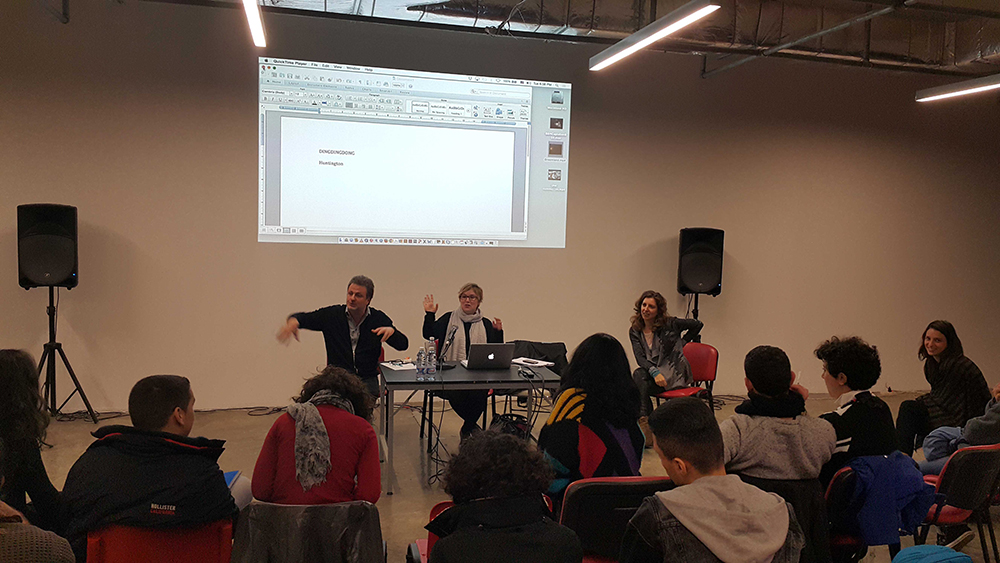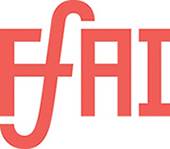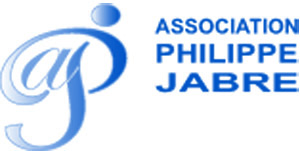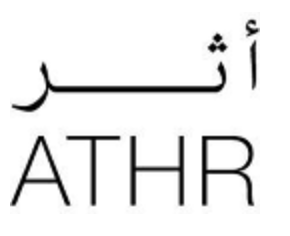The Preface | Lina Majdalanie
The Preface will be a four-week general introduction to the main theme of the year, “Setups / Situations / Institutions.” With a focus on Lebanon, the Preface will introduce the context, the different structures and institutions, as well as the artistic or intellectual initiatives (or even those of citizens), which have taken place in Beirut since the 1990s. This includes not only art practices, but also cultural initiatives dealing with other issues such as public space, archives, urbanism, NGOs, ideological and political movements, relations to the image, writing of history, among others.
Artists, activists, journalists, authors, architects and other members of the political, social, civic and literary world will be invited to present and (re)place in their context(s) the main debates of the last decades. There will be visits to different places and guided tours of the city. In short, an immersion into the heart of Beirut’s realities, images, representations, and mythologies.
Week One: orientation | presentation by Lina Saneh | presentations by enrolled participants | Hamra tour with Nesrine Khodr, visit to Zico House and conversation with Mostapha “Zico” Yamout | Gemmayzé and Mar Mikhael tour with Ghassan Halwani | Achrafieh tour with Tony Chakar | Burj Hammoud tour with Maxime Hourani and Jessika Khazrik
Week Two: conversation with Ahmad Beydoun | Ashkal Alwan, conversation with Amal Issa and Lina Saneh | seminar by Jalal Toufic | Beirut DC, conversation with Jad Abi Khalil | Ayloul festival and Mulhaq An Nahar (An Nahar cultural Supplement), conversation with Tony Chakar and Lina Saneh | conversation with Elias Khoury | conversation with Bernard Khoury | conversation with Waddah Charara | Arab Image Foundation, conversation with Akram Zaatari | Metropolis Art Cinema, conversation with Hania Mroué | visit to Beirut Art Center, conversation with Sandra Dagher and Lamia Joreige
Week Three: conversation with Nizar Saghieh | conversation with George Arbid | visit to Solidére, conversation with Amira Al Solh | conversation with Tarek Al Ariss | conversation with Dalal El Bizri | 98weeks, conversation with Marwa Arsanios and Mirene Arsanios | conversation with Diana Abou Abbas, Georges Azzi, and Tarek Zeidan | visit to Sursock Museum
Week Four: conversations with Gheith Al-Amine, Marwa Arsanios, Ziad Antar, Vartan Avakian, Ali Cherri, Omar Fakhoury, Joe Namy, Tamara Al Samerraei, Sharif Sehnaoui, Corine Shawi, Nadim Tabet, Raed Yassin; moderated by Roy Samaha | Reuters, conversation with Jamal Sayideh; moderated by Roy Samaha | visit to Arab Image Foundation | visit to the National Museum
WORKSHOPS
WORKSHOP I | Traction 2: Workshopping the Riwaq Biennale
Khalil Rabah | November 17 – 28, 2014
Traction 2 doubles as the 5th Riwaq Biennale’s (RB5) contribution to Home Workspace Program (HWP) 2014-15 at Ashkal Alwan, Beirut. As a whole, it will reflect all the key components of RB5. The seminar begins with an introduction to the biennale program and the Riwaq agenda, and features extensive tours of sites that were pivotal to the Palestinian experience in and around Beirut. In an exploration of HWP and the RB5 educational program NADI, Traction 2 also addresses the promises and pitfalls of informal art education over recent decades. Finally, the seminar ends with a transregional investigation of the institutional memory of contemporary art since the 1990s.
The seminar forms the second part of the RB5 public program, Traction, which is structured as a long series of responses to institutions and events throughout Palestine and its immediate neighborhood. It aims to push the biennale to be thinking “through” the structures of contemporary art, as opposed to thinking “about” or “against” them.In this spirit of chronic infiltrations and slow tenacity, RB5 will span a full two years, which may allow this brief visit to Lebanon to become a lasting contribution to a longer, accumulative conversation.
Traction 2 is not only an infiltration of HWP in Beirut, where RB artistic director Khalil Rabah is one of the year’s resident professors, but an opportunity to enrich and indeed infiltrate the RB5 agenda in and of itself.
Traction 2 is an event produced and organized by Home Workspace Program Ashkal Alwan and the 5th Riwaq Biennale in Palestine.Traction is a program proposed and organized by the 5th Riwaq Biennale in Palestine.
WORKSHOP II | The loudest muttering is over
Walid Raad | January 5 – 16, 2015
For the past seven years, Raad has been working on an art project titled Scratching on things I could disavow which proceeds from the recent emergence of new infrastructures for the arts in the MENASA region, with particular emphasis on recent developments in Lebanon, UAE and Qatar. Raad’s project engages the concepts, gestures, and forms made possible by these infrastructures as well as their ideological, economic, historical, and political frames. Raad’s workshop will parallel his own ongoing inquiry and interests and as such will include lectures, presentations, and interviews with the artists, writers, theorists, historians, activists and others who continue to inform his project.
With guest speakers Alexandre Karezouni, Maria Lind, Eungie Joo, and Andrea Salvini.
WORKSHOP III | 4 thoughts among others
Kader Attia | January 26 – February 6, 2015
Attia’s last publication RepaiR will serve as the canvas for this workshop, in which he will explore together with participants different thoughts on four fields he developed in his multi-thought project. As an artist, Attia always finds fascinating how things that are not Art can lead to Art. Textual or visual archives have this heavy absolutism, which has to become a beyond and/or a before Art. The aim is not to teach Art, but to share unexpected experiences, souvenirs, encounters, observations, imaginations and intuitions which one day could suggest a starting point for Art.
4 thoughts among others include four subtitles:
– The anthropocene, Nature’s agency becomes institution
– Architecture, a body on both sides of the skin (or in and out of the skin)
– From the political to the intimate, music as sexual revolution
– History to do what?
With guest speakers Françoise Vergès, Jacinto Lageira, Léa Gauthier, Ana Teixeira Pinto and Doreen Mende.
WORKSHOP IV | Inquiries on a Common World
Joana Hadjithomas & Khalil Joreige | February 16 – 27, 2015
Facing certain situations, to what modes of inquiry, practices of art, but also tools and methods of sciences can we refer today? Considering their research on the construction of imaginaries and the writing of history, Joreige and Hadjithomas will work jointly with Bruno Latour and his methodologies, with members or former participants of SPEAP (the Masters program of Experimentation in Art and Politics, Sciences Po, Paris) Valérie Pihet and Sandra Terdjman, with actors in the Lebanese scene Waddah Charara and Tarek Atoui, and with participants. Presentations and workshops shall focus on the shareable public space, on the common, and on the invention of new forms of political, scientific and artistic representations.
With guest speakers Valérie Pihet, Bruno Latour, Waddah Charara, Sandra Terdjman, and Tarek Atoui.
WORKSHOP V | Encountering the Counterinstitution
Gregory Sholette | April 13 – 24, 2015
In the aftermath of recent and ongoing mass occupations of public space around the globe, the question of collective practice and institutional formation has become paramount for artistic work. This learning unit will systematically investigate new, as well as older, overlooked ways of organizing cooperatives, cultural spaces, inter-active and public-art projects, and other DIY institutions. Over the course of two weeks a series of lectures, workshops, and assignments will draw on the history of tactical media, community organizing, Occupy, counter-globalization, as well as other related examples. Throughout this the aim for Sholette and participants will be to address a contrasting set of challenges – both critical and constructive – involving the re-thinking of institutions today by taking their cue from Slavoj Zizek as they aim to develop their own “pervert’s guide” to 21st Century cultural institutions.
With guest speakers Josh MacPhee and Rick Lowe.
WORKSHOP VI | Really Useful Knowledge
What, How, & for Whom / WHW | May 4 – 15, 2015
The notion of “really useful knowledge” originated with the rise of the workers’ awareness of the need for self-education in the early 19th century. In the 1820s and 1830s, workers’ organizations in the UK introduced this phrase to describe the body of knowledge that encompassed various ‘unpractical’ disciplines such as politics, economics and philosophy, as opposed to ‘useful knowledge’ proclaimed as such by business owners, who sometime earlier began increasingly investing in the advancement of their businesses through funding the education of workers in ‘applicable’ skills and disciplines such as engineering, physics, chemistry or math.
Starting from research for the Really Useful Knowledge exhibition that WHW curated at Museo Reina Sofia in Madrid (October 2014), this chapter will inquire into ‘really useful knowledge’ from the contemporary perspective, looking into discussions about critical pedagogy as a crucial element of collective struggles. It will be structured along several lines of inquiry related to historical and present instances of collective utilization of existing public resources, actions, and experiments, either forgotten or under threat of eradication.
With guest speakers Nick Aikens, Rasha Salti, Jelena Vesi and Lawrence Abu Hamdan.
WORKSHOP VII
HWP Participants | May 25 – June 5, 2015
Organized by HWP 2014-15 participants Fadi Abu Nehmeh, Salwa Aleryani, Nour Bishouty, Haitham Ennasr, Walid Elsawi, Mena El Shazly, Raymond Gemayel, Iman Ibrahim, Mary Jirmanus, Dina Khouri, Ferdinand Klüsener, Eshan Rafi, Mahmoud Safadi, Merve Unsal, Tala Worrell, Elijah Yakovenko.
WEDNESDAY, JUNE 3
8 – 9:30 pm | public: Kolleg zum Bau einer imaginären Stadt (KBI) – Organized by Ferdinand Klüsener in collaboration with Ongoing Project
With Amer Makarem, Walid Sadek,Nassib Al Solh and Nasser Ballout
* In Arabic with simultaneous translation to English.
more info here.
THURSDAY, JUNE 4
8 pm – late | public: No Title – Exhibition catalogue and opening in collaboration with HWP 2014-15 participants
more info here.
FRIDAY, JUNE 5
Dalieh: Meet and Greet – Tour and Discussion organized by Mahmoud Safadi
3 – 6 pm | by registration: SESSION 1 – Cruising: Boat tour from Ain el Mreisseh to Dalieh
7 – 9 pm | public: SESSION 2 – Come Together: A discussion with members of The Civil Campaign to Protect Dalieh?
more info here.
SEMINARS
Jalal Toufic | Every third Monday from October 13 – June 15
The Withdrawal of Tradition Past a Surpassing Disaster
We live in a block universe of spacetime, where nothing physically passes and vanishes, but where occasionally things immaterially withdraw due to surpassing disasters. To detect this withdrawal, whether symptomatically or otherwise, one is well advised to look for it in messianic movements as well as in artistic and literary works. With regard to the surpassing disaster, art acts like the mirror in vampire films; it reveals the withdrawal of what we consider is still there. Following the surpassing disaster, the duty of at least some artists is to disclose the withdrawal (Duras’ Hiroshima mon amour, 1961; Godard’s King Lear, 1987) and/or to resurrect what became withdrawn (Godard’s King Lear). In normal times a nebulous entity despite the somewhat artificial process of canon formation, tradition becomes delineated and specified by the surpassing disaster: tradition is what conjointly materially survived the surpassing disaster, was immaterially withdrawn by it, and had the fortune of being subsequently resurrected by artists, writers, thinkers, and messianists. If they repeatedly prove unable to resurrect what was withdrawn by the surpassing disaster, tradition, then it can be argued that, at the end of the “season in hell,” thinkers, artists, writers, and messianists are to abolish tradition altogether: “absolutely modern” (Rimbaud).
Critic Session and Open Studios
Organized by HWP 2014-15 participants Fadi Abu Nehmeh, Salwa Aleryani, Nour Bishouty, Haitham Ennasr, Walid Elsawi, Mena El Shazly, Raymond Gemayel, Iman Ibrahim, Mary Jirmanus, Dina Khouri, Ferdinand Klüsener, Eshan Rafi, Mahmoud Safadi, Merve Unsal, Tala Worrell, Elijah Yakovenko.
– December 15-19, 2014: Critic Session I (with invited jury Haig Aivazian, Mirene Arsanios, Marwan Rechmaoui)
– March 23-27, 2015: Critic Session II (with invited jury Mirene Arsanios, Bassam el Baroni, Paola Yacoub)
– June 24-25, 2015: Critic Session III (with invited jury Marwan Rechmaoui, Toleen Touq, Walid Sadek)
– June 30-July 3, 2015: Open Studios (public)
















